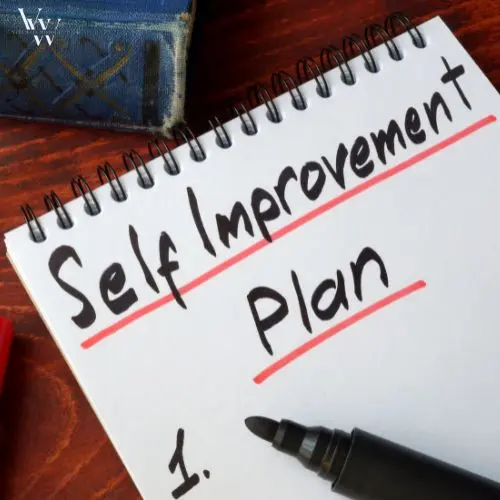Introduction
The desire to better ourselves is innate to human nature. No matter who we are or where we come from, we all seek growth and evolution in life. While genetics and environment play a role, conscious effort and mastery over the mind are equally, if not more, significant for self-development.
Creating a solid foundation is essential before embarking on any self-improvement journey. This entails gaining clarity, setting intentional goals, practising self-awareness, cultivating discipline and refining habits. Simply hoping, wishing, or sporadically trying tactics won’t yield enduring results.
This article explores establishing an inner foundation as the cornerstone for sustainable personal growth. We share time-tested principles and approaches along with real-life examples. An overview table highlights the major focus areas of this crucial preliminary work:
| Focus Area | Importance | Example Strategies | Estimated Time Investment |
|---|---|---|---|
| Clarity & Goal Setting | Having direction and purpose | Creating mission/vision statements, SMART goals, envisioning desired outcomes | 1-2 hours weekly for 4 weeks |
| Self-Awareness | Understanding strengths and areas for improvement | Journaling, reflection, getting feedback from trusted sources | 15-30 minutes daily |
| Habit Refinement | Consciously shaping daily routines | Taking consistent action requires willpower | Varies depending on habits, 1 month minimum |
| Discipline Building | Varies depending on habits, 1-month minimum | Commitment devices, accountability, persevering through challenges, delaying gratification | Gradual and ongoing, aim for 2 months consistently |
Let’s deep dive into each area to help lay the proper inner foundation as the first step towards long-term self-improvement.
Developing Clarity and Setting Goals
Before progressing further, it helps to define exactly what you want to improve and achieve clearly. Having specific and measurable goals provides invaluable motivation and direction. Some effective strategies include:
- Create a personal mission/vision statement outlining core values and long-term priorities in life.
- Conduct a self-assessment to recognize strengths/weaknesses across key areas like health, career, relationships etc.
- Set SMART goals by making them specific, measurable, achievable, relevant and time-bound to stay on track.
- Visualize the process and desired outcomes in mind through daily envisioning and journaling.
- Review goals regularly and make mid-course corrections for best results over 6-12 months.
Clarity on what needs work and setting intentional goals keeps efforts focused rather than scattered. Dedicate at least 1-2 hours weekly to develop this foundation for four weeks.
Practising Self-Awareness Through Reflection

Like improving any skill, we must first understand ourselves – thoughts, emotions, patterns, triggers and areas ripe for growth. While not always comfortable, self-awareness is critical to long-term progress. Consistent reflection helps cultivate this necessary competence:
- Journaling daily provides an outlet to examine experiences and gain tangible self-insights over time.
- Seeking feedback from trusted peers and mentors provides an outsider’s lens to behaviours and impacts we may overlook ourselves.
- Regularly introspecting on decisions, reactions and stresses during meditation aids in recognising habitual thinking and instincts to work on.
- Keeping track of moods, productivity, stress levels etc., through a diary or app shows areas impacting well-being and performance needing intervention.
Setting aside 15-30 minutes daily for reflection, introspection, and honest self-assessment is invaluable before honing specific skills or traits. Mastering self-awareness strengthens all other improvement efforts.
Refining Habits Through Mindful Practice

Given the chronic nature of human behaviour, augmenting routines via conscious choices is a proven way to materially change patterns over the long run. Beneficial habits must replace non-constructive ones through dedicated practice characterized by the following:
- Forming new, small, consistent habits serving goals like meditation, exercise, and learning using habit trackers and commitment devices keeps motivation high.
- Identifying and eliminating time-wasting or health-harming habits helps free up willpower for worthwhile activities.
- Mindfully practising gratitude, presence and emotional regulation amidst challenges aids in cultivating inner strength, resilience and well-being over time.
Based on neuroplasticity research, it takes anywhere between 18 to 254 days for a habit to stick naturally. Dedicate each month to consciously implementing 2-3 positive habits while removing 1-2 negative ones to see material changes.
Gradually Developing Willpower through Discipline

Effecting real change requires harnessing willpower – the ability to take consistent action in service of our priorities despite challenges, cravings or discomfort. While effort develops discipline over time, some proactive steps can accelerate progress:
- Making commitments publicly to important people increases accountability when willpower wavers.
- Undercommitting and persevering through setbacks or failures to stick with goals, learn from mistakes, get up and keep trying.
- Practising delaying gratification through short-term sacrifices for essential long-term rewards aids in cultivating self-control.
- Managing stress, practising mindfulness and getting adequate rest to assist in coping with life’s difficulties that deplete willpower.
While challenging, consciously working to strengthen discipline via small daily acts of self-mastery over 2-3 months aids in significantly improving willpower as a foundation for progress.
Sustaining Focus through Consistent Practice
Establishing an inner foundation is no overnight fix. However, dedicating just 30-60 minutes consistently to the above four areas can seriously augment self-improvement efforts over the long run. Staying focused on the process rather than quick outcomes reaps maximum benefits. Some additional tips:
- Review progress monthly and reset strategies that aren’t effective versus beating oneself for lack of ‘success’.
- Note improvements objectively in a journal to stay motivated during inevitable difficult patches.
- Share confidentially with an accountability partner to enhance learning and perseverance via social support.
- Accept setbacks gracefully and get right back on track instead of derailing completely. Rome wasn’t built in a day.
- Celebrate small wins to keep the source of self-worth internal versus depending on external praise and validations.
- Practice self-compassion to soothe inevitable frustration and sustain efforts driven by intrinsic care versus external rewards.
Dedicating even 30 minutes toward this foundation each day yields incredible long-term dividends. Changing ingrained patterns demands perseverance and kindness with oneself through the journey.
Some frequently asked questions about cultivating an inner foundation include:
Q. What if I’m too overwhelmed to tackle everything at once?
A. That’s completely normal. Pick just 1-2 areas like goal setting or habit change to focus on for a month before adding more. Small steps sustain efforts.
Q. How can I stay consistent when motivation fluctuates?
A. Forming habits and accountability keeps the ball rolling through streaks. Note progress objectively and accept setbacks gracefully versus harsh judgment that quells perseverance.
Q: What if lack of willpower is my most significant barrier?
A: Patience and self-compassion are key. Try commitment devices, removing temptation and learning to delay gratification in small doses before attempting more dramatic changes requiring tremendous willpower. Consistently practising mindfulness and managing stress also bolsters discipline.
Conclusion
In conclusion, diligently laying an inner foundation is one of the most impactful yet underrated steps for long-term self-improvement and evolution. Clarity, self-awareness, habit refinement and discipline take time to cultivate but serve as an incredibly sturdy platform for building any other specific area of our lives. Staying dedicated to diligently investing 30-60 minutes consistently on this preliminary work can yield immense dividends for years.


1 thought on “Building Yourself: A Key Foundation for Self-Improvement”